
“There is no murder in Japan.” That’s the line that sets up the central tension in director Michael Mann’s stylish television series Tokyo Vice, delivered by a cop musing about a stabbing victim. The show focuses on a young American journalist, Jake Adelstein—played by Ansel Elgort—as he slips into the criminal networks of a city coated in a benevolent veneer. In the HBO Max series, which is about to conclude its second sesaon, Elgort's character develops an uneasy relationship with a captivating newcomer: Show Kasamatsu.
The Japanese actor plays Akiro Sato, a scene-stealing Yakuza clan enforcer whose loyalties and ambitions remain hard to pin down. The series marks a career breakout for Kasamatsu, who cut his teeth in Japanese television, but has only recently been introduced to international audiences with his portrayal of Sato and a role in Disney+’s mystery series Gannibal.
Ahead of the season two finale, Kasamatsu sat down with Hollywood regular Elgort to discuss lighting up American screens, the textures of ’90s era Tokyo, and the precision of Michael Mann.

CULTURED: Describe the ways your relationship has evolved between shooting the first and second seasons. What were your first impressions of one another?
Ansel Elgort: I remember meeting you and right away we had great chemistry. When we’re on screen, you always have more of a boundary, but off camera, I feel like we’re closer than our characters.
Show Kasamatsu: You were always speaking good Japanese so I was surprised you could speak English like that. On set, I was nervous and everything was hard for me, but you taught me a lot. You were so friendly and that was so helpful—I want to say thank you again. I am so inspired by you.
Elgort: I'm inspired by you, too.
CULTURED: Can you describe some of the ways this show has changed your life and career?
Kasamatsu: I had never taken an airplane before Tokyo Vice. I don’t like traveling and love to watch YouTube in bed but everything has changed. I don’t know if it’s good or not because I have not attained anything yet, but I am enjoying my life right now.
Elgort: We’re very lucky guys. Michael [Mann] has another level of work ethic. That inspired me to have a better work ethic. So, in Tokyo, I would hang out with actors who weren’t speaking English to practice my Japanese and immerse myself in the culture.
I just celebrated my 30th birthday and everyone said, “Ansel, it’s so great you’ve spent this time in Japan, you’ve really grown up.” I learned for the first time in my life how to be patient and how to respect someone who’s older and not to challenge and correct people when you don’t need to. I learned how to be Japanese and to use that as a tool in my life.

CULTURED: How do you feel about Tokyo Vice's portrayal of Tokyo and Japanese culture? What aspects of the culture do you think the show shines a light on that might otherwise be missed?
Kasamatsu: The perspective of Tokyo from American people is so interesting. Human relationships in Japan tend to not be very free and that’s shown in the show, especially in season two. That was really fun and very quintessential Japanese. We as Japanese tend to focus on the bad parts, but this show made me really proud of Japan.
CULTURED: How do you think this show has impacted Japanese audiences compared to American ones?
Elgort: It’s like a real picture of the culture and of Japan in the ‘90s. Tourists stop me in Japan, saying, “Oh my God, I’m just watching Tokyo Vice right now,” and I wonder if they watch Tokyo Vice and say, “I gotta go to Japan” or if they're going to Japan, so they watch Tokyo Vice.
Kasamatsu: It’s given a lot of hope and dreams to actors and directors in Japan because it proved that, if you keep doing your best, there is a chance to be in a Hollywood production.

CULTURED: How did your relationship to each of your characters change during shooting for season two?
Kasamatsu: We have a weird relationship, right? I cannot trust you. Not perfectly, because you’re a journalist and you will write my story. But you are so attractive and brave that my character just enjoys being your friend and colleague.
Elgort: I’ve slowly gotten more comfortable playing the character. For movies, you’re done in three or four months, but to have all that time to feel like I’m a journalist, knowing how Jake would react, or starting to understand the relationship with Jake’s family has been really interesting. A lot of things are uncovered as you learn more of who your character is.
Kasamatsu: That reminds me of 10 years ago when I wanted to work a lot but there wasn’t a lot of work available. Some years later, I was booked up for two to three years. I sometimes would think to myself, It would be nice to go back and have just a few things booked here and there, but this is the U.S. style.
That’s similar to what Sato goes through this season—gaining more responsibility, his relationship with Jake and all these different characters. Then, in episode eight, when everything falls apart, things shift again. I think back to 10 years ago and this is what I wanted then and now I have it, so there's some uneasiness but also a lot of freedom that comes with that.
Elgort: I love thinking about when we first started this career. My dream was to be a working actor without having to be a waiter at the same time. So, to be able to do a show where you’re busy in another country, every day, is such a privilege.
The great thing about season two is it doesn’t pull your plate away from you before you get to finish your meal, and then [make you] wait a year and a half before giving you the rest. You get to finish your meal and feel great about it. I would love to come back to this table with everyone we worked with and have another feast.

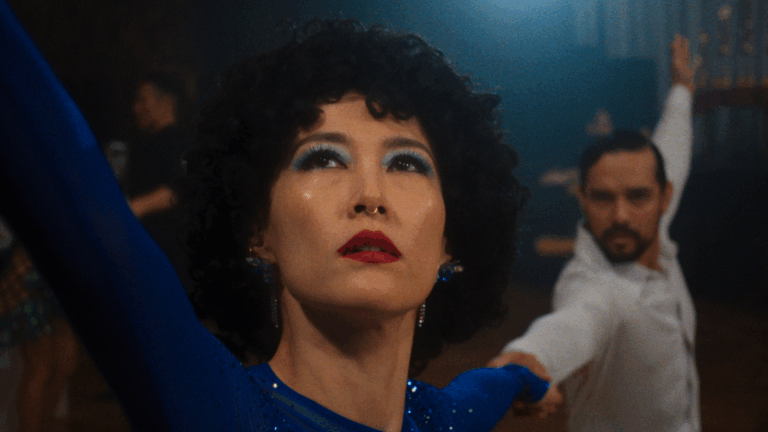
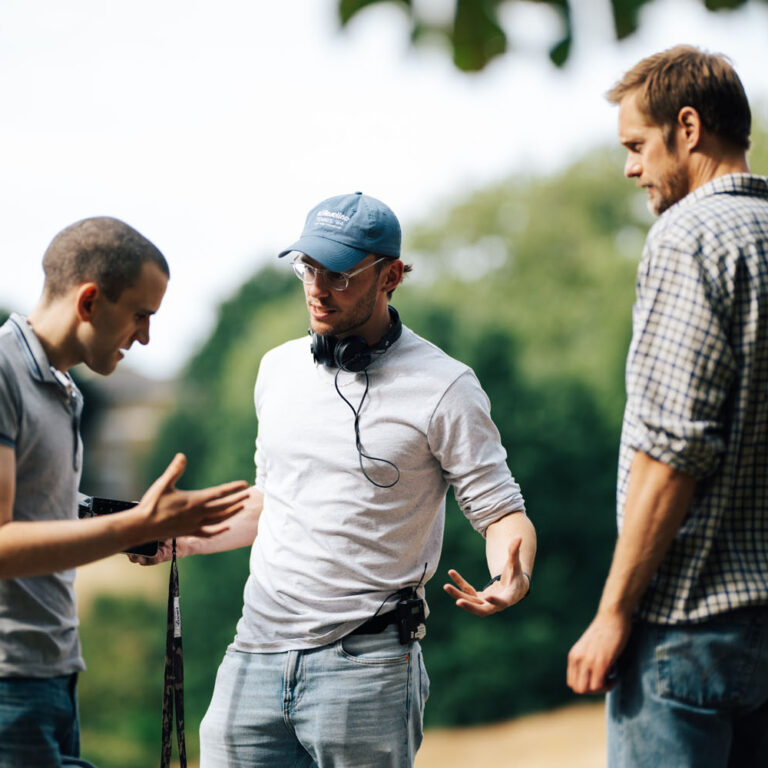
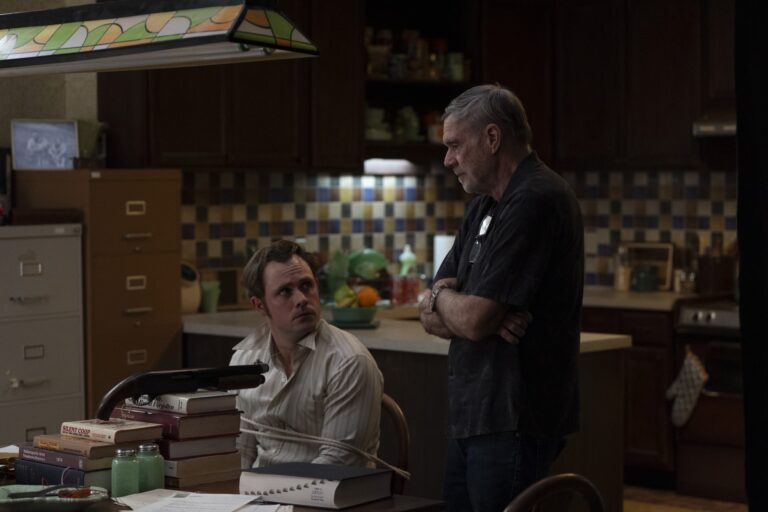
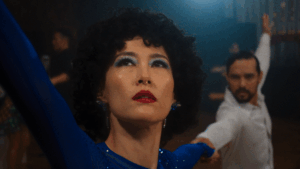
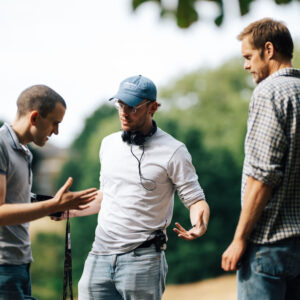
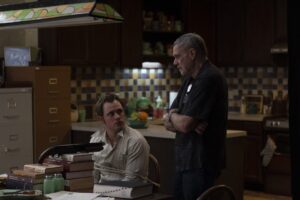



 in your life?
in your life?

